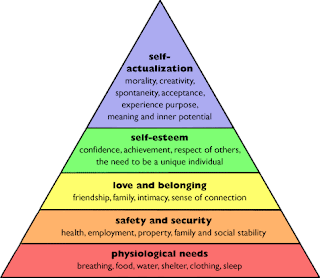7QT - A Perfect Plethora of Ponderosities

---1---
Nelson Mandela passed away today. I am embarrassed to admit, I don't know much about him. I know he was a president of South Africa, and I think he had something to do with ending apartheid. I intend to remedy this lack of knowledge!! However, I did come across this awesome quote from him:
---2---
I'm on Book 7 of Harry Potter. Early into it, Hermione explains to Harry and Ron what she has discovered about horcruxes and how to destroy them: "But even if we wreck the thing [horcrux] it [a division of Voldemort's soul] lives in," said Ron, "why can't the bit of soul in it just go and live in something else?"
"Because a Horcrux is the complete opposite of a human being."
Seeing that Harry and Ron looked thoroughly confused, Hermione hurried on, "Look, if I picked up a sword right now, Ron, and ran you through with it, I wouldn't damage your soul at all."
"Which would be a real comfort to me, I'm sure," said Ron. Harry laughed.
"It should be, actually! But my point is that whatever happens to your body, your soul will survive, untouched," said Hermione. But it's the other way round with a Horcrux. The fragment of soul inside it depends on its container, its enchanted body, for survival. It can't exist without it."This discussion naturally made me think of Christian universalism and the biblical text that possibly has given me the most trouble in seeing how it could be both a biblically- and logically-sound theory. Naturally. I'm sure that's what you thought of, too.
The text to which I refer is, of course, Matthew 10:28: "Do not be afraid of those who kill the body but cannot kill the soul. Rather, be afraid of the One who can destroy both soul and body in hell" (NIV).
What gets me is that both are being "destroyed" (because of this terminology, in fact, I have long thought this verse was probably key to any doctrine arguing for conditional immortality). Perhaps Jesus isn't emphasing eternal punishment here at all, but rather the difference between physical and spiritual destruction. You've heard the saying, "There are worse things than death." Psychological anguish is certainly one of them...ask anyone who has ever contemplated suicide. You also are probably aware that evil exists; some people do more than just sin - they do evil things that destroy others. The go-to example for this is Hitler. Cliche, I know, but if there's anyone I can't wrap my mind around going to some sort of Heaven, or being redeemed by God, it's him. I think he provides evidence that some people can reject God's efforts at redemption. Even if hell exists and is purgatorial/temporary in nature...I think someone like Hitler would end up being there for a very long time!
But what would cause someone to do such evil acts? The same sort of woundedness of spirit that causes "everyday" sin in "less-evil" people...? Does spiritual destruction - breaking, if you will, past the point of being fixable - happen in this life? If so, that brings up two further questions: 1) is a spiritually broken person (with or without regard to the extent of brokenness) held responsible for his/her own brokenness? and 2) if the destruction of both body and soul happens as part of this life, then maybe Jesus isn't talking about an eternal pit-of-fire hell...but if not, then what is He talking about? What are the implications of this for practical theology?
---3---
This article by Maria Popova provides excerpts of a conversation between Albert Einstein and Rabindranath Tagore regarding the relationship between science and spirituality (basically, whether or not reason supports the idea of God). I found both sides of the argument interesting, and of course sided more closely with Einstein's. The next-to-last quote from Tagore (the really long one) caused me to relate one's search for truth to Maslow's heirarchy of needs: You might think I mean a person's need for "truth" is in the heirarchy; but, though that might be true to an extent, I rather think it relates to each level of the heirarchy. Followers of specific religions and those who do not follow a particular system of belief differ in what they perceive as "truth" at each level of Maslow's theory. For instance, which is more important - physiological well-being or spiritual? Ask an atheist medical doctor and ask a Hindu, and you will get two different answers. (Ironically, in this context the order of Maslow's heirarchy is itself relative.)
Tagore speaks here of truth being relevant only insofar as it concerns humanity; thus alleged "truth" outside of human experience simply cannot exist in any meaningful way to a human (or at least that is how I very roughly interpret this part of what he says). My thought in relation to his proposition is that a person's understanding of "truth" does indeed begin with subjective experience. For instance - your physical safety needs probably rate second place in my priorities to my own physical safety needs. Perhaps truth could have its own heirarchy...or, putting it another way, perhaps I have moved "up" a level on the pyramid when your safety (or another's - perhaps, for example, my child's) at some point becomes paramount to my own.
---4---
I've been watching Once Upon a Time on Netflix. Is it weird that I see all kinds of theological applications in it? For instance, the whole first season revolved around the premise that true love is the only power strong enough to break any curse. There have been several different episodes that have made me think deep thoughts :), and now I am at the end of season two. Snow White is in the woods trying to convince Pinocchio to come back to town. She tells him it is time to stop feeling sorry for himself and just come back and face what he fears; no matter what he has done, he deserves a second chance. He tells her that is easy for her to say - she has never had to worry about forgiveness, redemption...she's never needed it. What he doesn't know is that she only days before had tricked Regina into killing her own mother. What strikes me about it is that Snow White feels compassion for Pinocchio. He sees himself as a shameful failure, but she simply cannot see him like that. She sees the good in him. But while she is having the conversation with him in the woods, she is struggling to see herself with as much grace. As the episode progresses, she becomes sort of an advocate to get Pinocchio the help he needs to return from his wooden state. The inference is that she clings tenaciously to the hope that there is a remedy for him, because she desperately needs to believe there is a remedy for herself. So then, do like need and experience provoke the deep empathy and compassion required to help others with some measure of selflessness? We believe, after all, that Jesus experiences empathy for us because of the human life He lived.
But He never sinned. So...does He really understand/empathize with the plight of sinful humanity in need of a Savior? He got to see it first hand and witness its devastation in the broken lives He encountered, many of which He healed. But He never needed forgiveness Himself. (Some theologians, though, would argue here that though He never needed redemption, He did indeed feel the weight of the need when He took upon Himself the world's sin while He was on the cross.)
But back to Once Upon a Time...it is not fair for me to single out this instance of Snow White advocating for someone else and say she only did it because she needed restoration into grace herself. Before she ever "darkened her heart" through her role in Cora's death, she continually bestowed forgiveness and second chances...to Regina especially. So perhaps her advocacy for Pinocchio wasn't intrinsically selfish. Perhaps it wasn't inspired for a desire that someone would look upon her with the same favor. Perhaps God, likewise, can empathize with our need even though He has never Himself stood in need of redemption.
Perhaps I read way too much into fictional storylines....
(Sidenote: as this series unfolds, I am so impressed - the stories are brilliantly woven together!)
---5---
I am observing Advent for the first time this year. I don't know much about it. I do know it is a season of hope and expectation, looking forward to the Advent of Christ as represented by Christmas. I downloaded a nifty little liturgical calendar app on my Android phone, and I am reading a brief little blurb on there about a saint each day. I enjoy reading your blogs as I come across them, suggesting easy ways to observe the season, or mentioning new depths of truth you discover along the way. I don't yet have an Advent wreath, but I came up with this for the first week or two: First Sunday of Advent because I was sick, but I am looking forward to a liturgical experience this coming weekend (if they don't cancel because of the weather) at a local Episcopal church.
---6---
We've got snow!! As of today. So this evening I sat in my living room beside my pretty little Christmas tree (my first one!),
and my little snowman display,
 |
| (Uh...pay no attention to the heaping trash can in the background....) |
and watched a couple episodes of the 1st season of Gilmore Girls which I got a couple weeks ago at a thrift store for $2.98! It was a nice, cozy evening. Then I went outside and scraped my car,
 |
| (See? Snow!!) |
rented Monster's University, and came to work. (Thursday nights are my Mondays.)
---7---
I thought about putting a video of "Christmas Shoes" here for your viewing pleasure...but instead, how about I hook you up with a link to an article called "5 Best Ways to Survive 'Christmas Shoes'"? You're welcome.
For more Quick Takes, visit Conversion Diary!








I <3 the Harry Potter books! I've read them all and watched all the movies. I guess you can glean meaning from anything if you want to. To me it's just a fictional book... Great story line, but nothing to do with reality. For me anyway :)
ReplyDelete